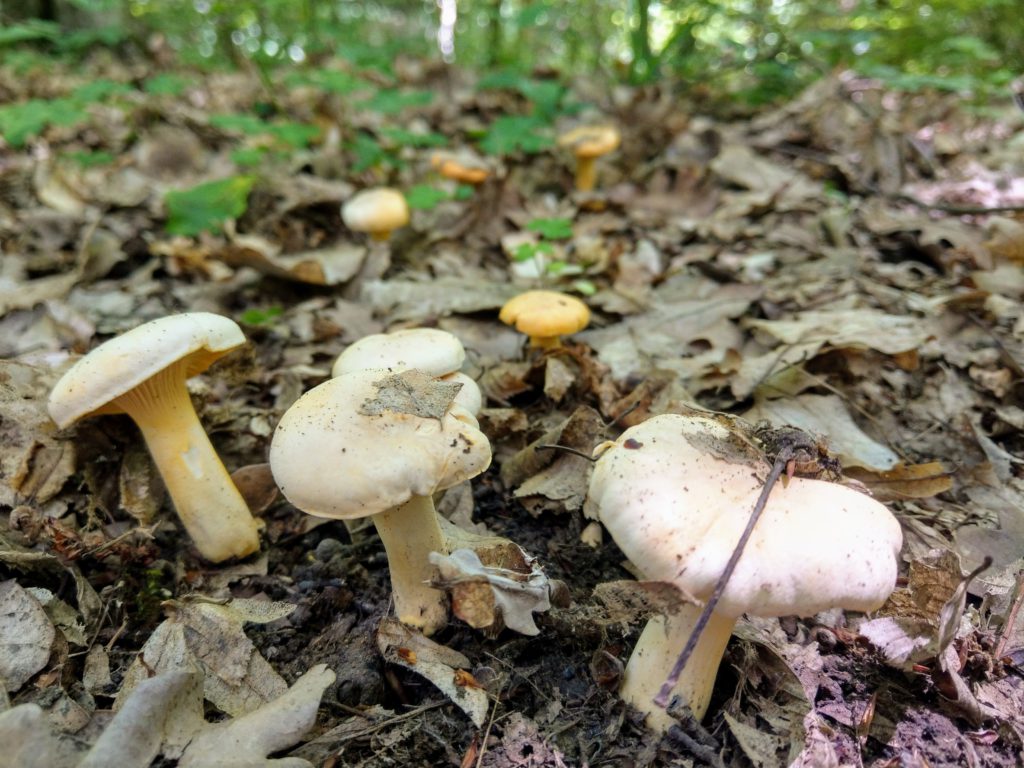Composting is a fantastic way to reduce waste, nourish the soil, and contribute to a sustainable environment. When it comes to composting, one common question that arises is whether mushrooms can be included in your compost pile, can you compost mushrooms? In this article, we will look at the feasibility, benefits, and guidelines for composting mushrooms.
You Can Compost Mushrooms
Yes, mushrooms can indeed be composted. In fact, they are an excellent addition to compost due to their high nutritional content. However, there are a few things to consider when composting mushrooms
- Fresh or Spent Mushrooms: Fresh mushrooms that are still intact and edible may be better utilized in cooking or other culinary applications. However, if you have spent or spoiled mushrooms, they can be added to the compost pile without any issues. Mushrooms that have started to decompose naturally will break down more easily during the composting process.
- Mushroom Stems and Scraps: When preparing mushrooms for meals, you might end up with stems or trimmings that are not suitable for cooking. These mushroom scraps can be added to the compost pile. Like most things, chop or shred them into smaller pieces to facilitate faster decomposition.

Benefits of Composting Mushrooms
Composting mushrooms offers several benefits to your compost and garden:
- Nutrient-Rich Organic Matter: Mushrooms are packed with valuable nutrients. By composting them, you contribute these nutrients, including potassium, phosphorus, calcium, and several trace minerals, to your compost pile. Ultimately, these nutrients will be returned to the soil, enriching it and promoting healthy plant growth.
- Fungal Diversity: Mushrooms are the fruiting bodies of fungi, which play a vital role in soil health. By composting mushrooms, you introduce fungal diversity into your compost pile. Fungi help break down complex organic matter, improving soil structure and nutrient availability for plants.
Guidelines for Composting Mushrooms
Overall, mushrooms are easy to compost, but there are a few things you want to think about. After all, mushrooms are a type of fungus, and we have talked about what to do when there is mold on your compost. Mold is another type of fungus. Mushrooms have some of the same considerations. Nothing bad, just a few things to think about. To effectively compost mushrooms, consider the following guidelines:
- Moisture and Airflow: Mushrooms have a high water content, so it’s crucial to maintain proper moisture levels in the compost pile. Aim for a moist but not soggy environment. Turning the compost pile regularly promotes airflow, preventing excessive moisture buildup and aiding decomposition. Make sure to include enough brown material in your compost and make sure it doesn’t get too moist.
- Composting Temperature: Mushrooms thrive in cooler, shaded environments. To facilitate their breakdown, ensure your compost pile remains in the optimal temperature range of 120°F to 160°F (49°C to 71°C). This range allows for efficient decomposition while minimizing the growth of harmful pathogens. You aren’t looking to grow mushrooms, just compost them.
- Balanced Composting: As with any composting process, maintaining a proper balance between carbon-rich (browns) and nitrogen-rich (greens) materials is crucial. Mushroom scraps are considered “greens,” so combine them with an appropriate amount of carbon-rich materials such as dry leaves, straw, or shredded paper to maintain the ideal carbon-to-nitrogen ratio in the compost pile.
Composting mushrooms is a beneficial way to divert organic waste from landfills while contributing valuable nutrients to your compost and soil. Whether you have spent mushrooms or mushroom scraps, they can be easily incorporated into your compost pile. Remember to maintain proper moisture and airflow, monitor composting temperature, and achieve a balanced composting mix. By composting mushrooms, you participate in a sustainable and eco-friendly approach to waste management while nurturing your garden with nutrient-rich compost.
